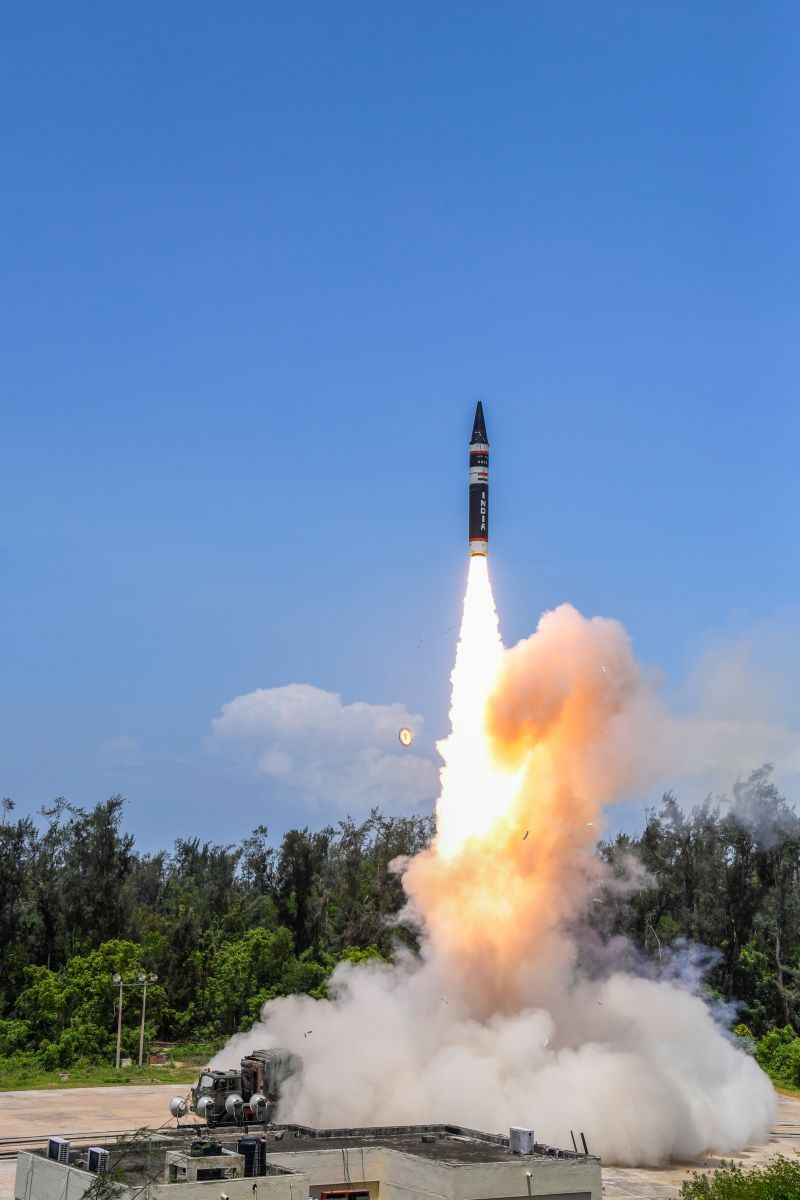Iran-Israel Relations: Unstable Future Ahead
By Maj Gen NK Bhatia

“Israel and Iran are officially not at war with each other, yet they both are at war.”
The above statement in a nutshell sums up the relations between the two countries whose hostility for each other is well known. Israel’s strong reaction to election of new Iranian President as ‘hangman of Tehran’ was therefore not at all surprising. The Israeli statement also indicates what lies ahead in relations between sworn enemies.
Iranian Supreme leader Ayatollah Khamenei’s hatred for Israel is well known and he has repeatedly called for Israel’s elimination by openly equating it with a "cancerous tumour" that needs to be eliminated.
The two countries, in the recent past, have been engaged in more than a ‘shadow’ face off. In fact both sides continue to engage each other through a series of covert actions designed to inflict maximum damage to each other using all three dimensions of warfare through clandestine means.
Although the 1979 Islamic Revolution turned upside down Iran’s outlook of geo politics; the relations between Israel and Iran were maintained through nondescript means in the shadow of Iraqi threat to Iran. It is in the backdrop of this threat that Iran-Contra deal took place, where Israel is known to have clandestinely helped Iran by supplying US weapons. To recollect, Iran-Contra affair was the secret deal between US administration and Iran sponsored Hezbollah to free US hostages who were being held by Hezbollah in Lebanon. Iran was desperate for US weapon in its fight against Iraq as it operated considerable US origin arms acquired during Shah’s regime. On the other hand US required the money to finance the Contra rebels in Nicaragua. In a Quid Pro Quo US agreed to supply weapons to Iran through Israel. Israel readily helped since it helped Israel to keep in check growing clout of Saddam Hussein who at that time seemed a common enemy of both sides.
In spite of secret deals between Iran and Israel, the seeds of conflict between the two countries had already been sown in 1982 during Israeli attack on Lebanon and coming into prominence of Hezbollah with tacit backing of Iran. Reduction in Iraqi threat post elimination of Saddam Hussein led to Iran increasing its attention to nurturing Shia proxies in countries neighbouring Israel, thereby posing a direct challenge to Israel’s security. But the beginning of Iranian’s hardening posturing against Israel commenced with the election of Mehmoud Ahmedinejad in 2005 and Israel found itself embroiled in increasing conflicts with non-state actors in its neighbourhood, the roots of which lay in Iranian support.
Meanwhile Iran embarked upon an ambitious nuclear and missile programme that became the new ground for rivalry between the two countries. The Iranian desire to assert its hegemony over the Arab world and push its brand of Islam at cost of causing instability in the region exacerbated the conflict. Iran also started posing an open challenge to Arab monarchies asking for regime change. This also alarmed Israel that was forced to take notice of Iran’s growing ambitions for control of the Islamic world.
However, it is the growing shrill of Iranian leadership and open hostility against Israel that poses a challenge to Israel. The reasons for Iranian hostility towards Israel are mainly three fold. Firstly, Iran considers USA as its enemy number one. Israel being USA’s biggest ally in the region and there being a near convergence in their geo-political goals in the region, brings Israel at the same pedestal of animosity as USA. Secondly, Iran is fearful of Israel’s capabilities to strike at its nuclear facilities and sabotage its missile programme, something that has been demonstrated by Israel more than once in the recent past. Thirdly, Israel’s improved relations with Arab nations, most prominently Saudi Arabia and UAE, seen on opposite side of Iran’s religious belief, that have potential to tilt regional balance in their favour are a reason enough for Iranian concerns.
Iran has always felt that USA and Israel have never reconciled to the overthrow of Shah of Iran and continue to destabilise it by supporting outfits that are opposed to Islamic Republic. Iran alleges Israeli support to Mujahideen Khalaq Organisation (MKO), an Iraq based anti-Iran outfit that has helped Israel sabotage Iranian nuclear facilities at Natanz and Arak. Iran also suspects Israel of supporting the Green Movement that has been questioning the legitimacy of Iranian leadership. It also feels that Kurdish Free Life Party and Baluchi group Jundullah are backed by Israel.
Although Iran and Israel do not share any common borders, yet they have been engaged in covert actions targeting each other’s assets. Israel has specifically targeted Iran’s nuclear facilities. It launched an attack by launching Stuxnet to incapacitate centrifuges in its nuclear plant.
Israel's Ambassador to England Tzipi Hotovely, admitted to BBC last week that Israel has been “carrying out a series of covert, unilateral and undeclared actions to try to slow down or cripple Iran's nuclear programme.” The assassination of Mohsen Fakhrizadeh in November 2020 was one such action. It confirmed what Ali Shamkhani, Secretary of Iran’s Supreme National Security Council had admitted that the operation was carried out in a very complicated manner using electronic equipment with no one at the scene, using a remotely controlled automatic machine gun, probably controlled by a satellite through a remote controlled aerial attack. Similarly, four Iranian nuclear scientists were assassinated in a series of car bombings between 2010 and 2012.
Activities of Iranian Revolutionary Guard Navy and Coast Guard have intensified in the sea. In Iranian covert action at sea earlier this year an Israeli-owned cargo ship, the MV Helios, was badly damaged while transiting the Gulf of Oman. In retaliation in April this year, an Iranian vessel ‘Saviz” anchored in the southern Red Sea, suffered damage to its hull believed to have been caused by limpet mines. It is believed the ship was acting as a logistic "mothership" for Iran's Houthi allies in Yemen. It is believed that over the past 18 months Israel has also targeted at least 12 ships bound for Syria, carrying Iranian oil and military supplies.
But it is the activities of Iranian Revolutionary Guard, the undeclared power behind the Islamic regime that have been nudging the Israelis and forcing them to react to every missile attack carried out from territory in West Bank, Gaza and Palestine areas by Hamas and Hizbollah who have been nurtured by Iranian Revolutionary Guard. The activities of Iranian Revolutionary Guard in Iraq and Syria also pose a direct threat to Israel and regional peace. Frustrated with the actions of Iranian Revolutionary Guard the USA had targeted General Qasem Solemani in January 2020, killing him instantly. But that has hardly had the desired impact on Iranian leadership to retract from its actions of nurturing its assets.
The new President elect Ebrahim Raisi in his first press conference reiterated that Iran's "regional activities and ballistic missile programme" were non-negotiable thereby indicating continued progression of its nuclear and missile programmes and support for its Shia proxies. It clearly indicates that Iran’s confrontationist stand is unlikely to change any time in the near future.
The future in relation to Iran-Israel relations appears to be laden with road blocks and any kind of reconciliation appears remote. To the contrary Iran’s election of an ultra-conservative to its Presidency only portends an instable regional scenario.
*Author is an Indian Army veteran. Views expressed here are personal.



